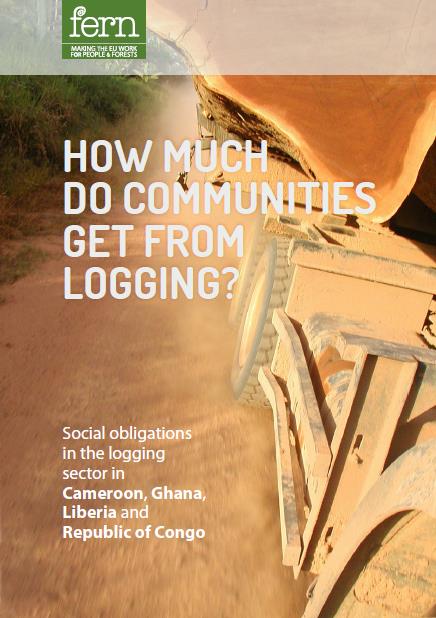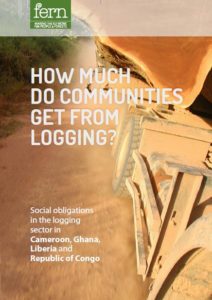
 This study looks at the benefits gained by local communities from the logging industry in Cameroon, Ghana, Liberia and the Republic of Congo and was carried out with support from and on request of local NGOs in these countries.
This study looks at the benefits gained by local communities from the logging industry in Cameroon, Ghana, Liberia and the Republic of Congo and was carried out with support from and on request of local NGOs in these countries.
The report analyses the legal framework around the various ways logging companies are obliged to support local communities. These include redistribution of taxes, direct payments from company to community or local administration, provision of community infrastructure by the company, compensation for damage to farms, and access to justice for communities.
The first conclusion of the study is that the amounts redistributed to local communities are relatively small. In Liberia – the best case scenario – 30 per cent of area-based tax is available to the communities adjacent to where logging takes place. In addition, these communities receive a fixed ‘cubic metre fee’ direct from the logging company. This means that in theory Liberian communities should receive at least some 26 per cent of logging revenues. In all other countries the proportion is much less.
